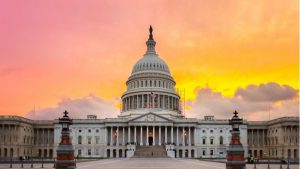A bipartisan group of senators from the Senate Committee on Commerce, Science, and Transportation has reintroduced the Telecommunications Skilled Workforce Act, a bill to address the shortage of trained telecom workers.
Today, IBM announced that it would be introducing in-kind grants to six school districts valued at $3 million to boost cybersecurity in schools. The grants will be for the school districts to sponsor teams of “IBMers” to assist in proactively preparing for cyberattacks.
The Federal Communications Commission (FCC) is seeking public comment on petitions to allow E-Rate funding to be used outside of schools and libraries in order to expand connectivity for students doing distance learning, according to a Feb. 1 public notice.
Sen. Brian Schatz, D-Hawai‘i, announced the state will receive $56.5 million in Federal funding to provide extra academic support for students in low income communities.
In the first legislative step toward paving the way for easier passage of President Biden’s $1.9 trillion COVID-19 relief plan, House Speaker Nancy Pelosi, D-Calif., and Senate Majority Leader Chuck Schumer, D-N.Y., introduced the text of a joint 2021 budget resolution on Feb. 1.
Atlanta Public Schools (APS) are looking to modernize and improve the transportation experience for the 11,708 students who ride the bus to and from school.
Virginia will award over $26.9 million in grants to increase broadband access in the state through the Virginia Telecommunication Initiative (VATI), Gov. Ralph Northam announced Jan. 26. The grants will support five projects in 11 different localities.
N.J. Transit received a Federal grant that will allow it to use AI and video analytics to study customer patterns on the River LINE light rail system, aiding in better crowd management in response to COVID-19.
Ahead of local Texas elections, Harris County Commissioners have voted unanimously to upgrade the county’s election system to have paper-trail technology to better serve its 2.3 million voters.
In recognition of its focus on technology modernization, Carnegie Mellon University has elevated the role of CIO to its executive management team. As a result, Carnegie Mellon announced that Stan Waddell has been promoted to vice president for information technology and CIO, effective immediately.












